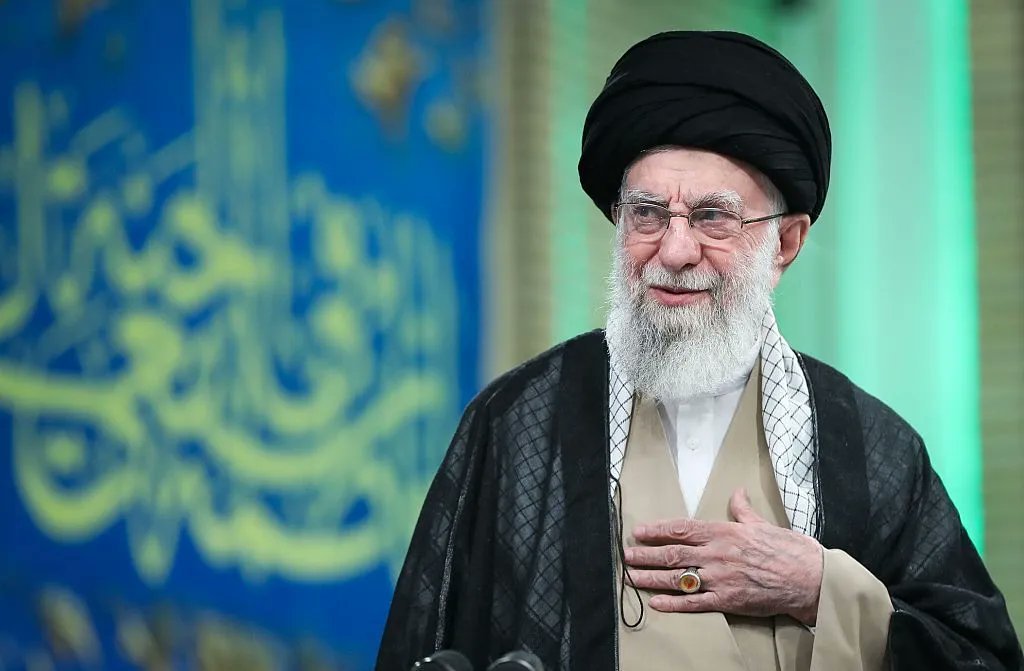Arab Silence and Selective Outrage Reveal a Crisis of Moral Credibility

In a region convulsed by war and foreign intervention, one might expect a chorus of unified outrage over the continued bloodshed in Gaza.
Yet when Iran launched missiles at a US military base in Qatar in what it called a retaliation for American strikes on its nuclear facilities, the Arab world’s reactions revealed a troubling hypocrisy.
From Riyadh to Doha, Arab governments lined up to condemn Iran’s actions. Qatar decried the attack as a “blatant violation of sovereignty.”
Saudi Arabia, the UAE, Kuwait, and Bahrain issued similarly scathing statements. Even the Muslim World League (MWL), based in Makkah and often silent on Israeli bombardments of Gaza, found its voice, declaring Iran’s actions a “flagrant violation of Islamic values.”
But when the US bombs Iran or when Israel razes neighborhoods in Gaza, killing civilians by the hundreds, these same voices are markedly subdued.
The MWL, for instance, could only muster “deep concern” over America’s targeting of Iranian nuclear facilities—far from the moral outrage it later expressed over Iran's response.
As for Israel’s relentless siege on Palestinians, the League’s statements, when they exist at all, are drowned in diplomatic ambiguity.
The inconsistency is jarring.
Pakistan broke ranks with most Arab states by condemning the US strikes on Iran’s nuclear facilities, calling them a violation of international law and a dangerous escalation.
Prime Minister Shehbaz Sharif reportedly conveyed this directly to Iran’s leadership, affirming Tehran’s right to self-defense under the UN Charter.
However, Pakistan has remained notably silent on Iran’s retaliatory missile strike against the US base in Qatar.
The selective statement underscores Islamabad’s attempt to balance regional solidarity with its strategic interests—supporting Iranian sovereignty while avoiding direct endorsement of military aggression against American assets.
Oman, often viewed as the region’s most independent actor, stands nearly alone in refusing to engage in this selective condemnation.
Muscat not only criticized Iran’s missile attack but also squarely blamed Israel and the United States for triggering the escalation in the first place.
In doing so, Oman underscored what other Arab states refuse to admit publicly: that their political calculus is no longer driven by the Palestinian cause, but by their partnerships with Washington and fear of Iran’s regional influence.
The Palestinian divide over Iran’s actions adds another layer of complexity. Palestinian Authority President Mahmoud Abbas condemned Iran, echoing Gulf sentiments that Iranian involvement prioritizes Tehran’s agenda over Palestinian lives.
Yet Hamas, battered and cornered in Gaza, welcomed the strikes as acts of resistance against US and Israeli aggression.
Their reliance on Iranian support is no secret, but the political rift exposes how even the Palestinian struggle has been fractured by the same regional power plays.
Meanwhile, Iraq—geographically and politically caught in the middle—chose a cautious route. The Foreign Ministry expressed “deep concern” and called for dialogue, while leaders like President Barham Saleh criticized the violation of sovereignty without explicitly condemning Iran.
It's a delicate balancing act reflective of Iraq's vulnerability and the scars of its own recent history with both American and Iranian interference.
But the Gulf monarchies, wealthy and protected by U.S. military installations, have no such excuse.
Their indignation over a missile strike on Al Udeid Air Base in Qatar rings hollow when juxtaposed with their muted response to Israel’s destruction in Gaza or to US operations that routinely violate the sovereignty of Arab and Muslim nations.
That many of these same states continue to host American troops—enabling the very strikes they decry—only sharpens the irony.
How can a coalition claim to uphold Islamic values when those values are invoked selectively—loudly against Iran, but rarely against the powers directly occupying or bombing Muslim lands?
This moral inconsistency is not lost on the Arab public. Anger simmers on social media platforms, where users from across the region question why Palestinian blood elicits so little official outrage while a US airbase draws swift condemnation.
The silence of institutions like the Muslim World League during some of the worst atrocities in Gaza is viewed not as neutrality, but as complicity.
In the end, the question is not whether Iran's actions are defensible. It is whether the Arab world can claim any moral high ground when its responses are dictated less by principle and more by politics.
Until Arab states and their religious institutions find the courage to apply their outrage uniformly—to speak out against all acts of aggression, whether by Iran, Israel, or the United States—their credibility will remain fatally compromised.
And the Palestinian people, already abandoned by the world, will continue to wonder who in the Arab world still speaks for them.



0 Comments